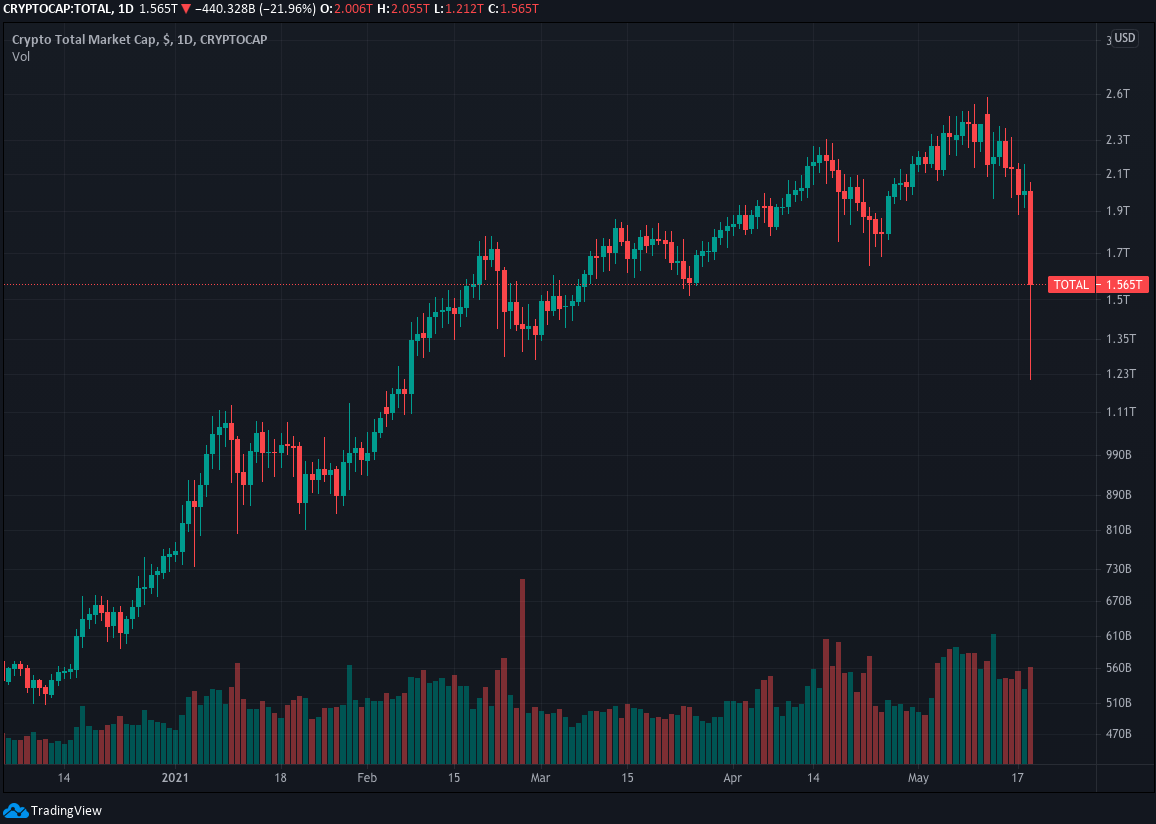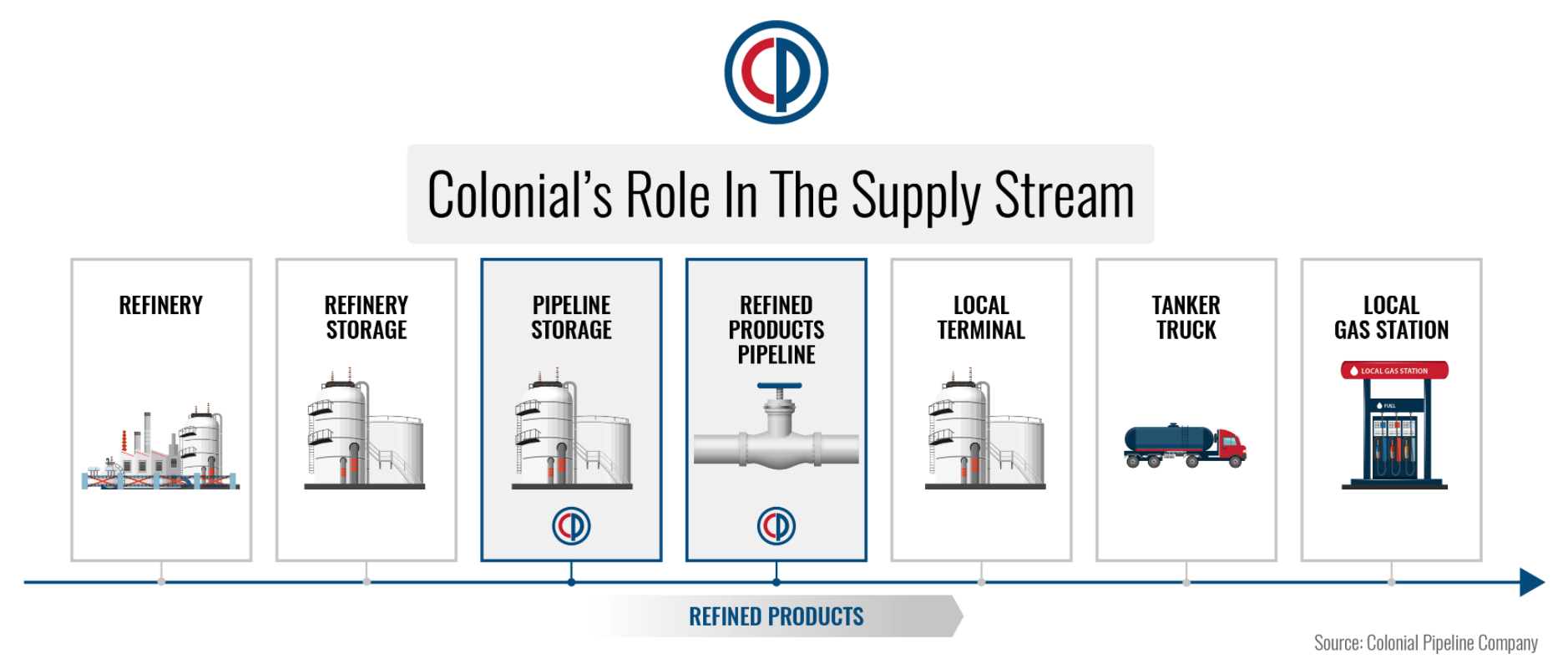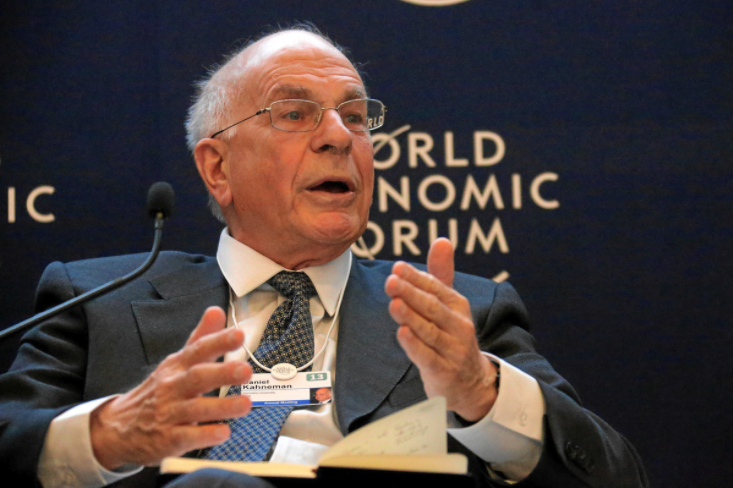Off the Charts! CEO pays US$4.4 million hacker ransom, Nobel winner Kahneman on improving decisions, and a 7500% penny stock rollercoaster
What a lopsided week. Our fascination with cryptos continued as Bitcoin - having been well and truly Tesla-ed - tripped, fell, went splat, and did the dead cat bounce, none of which deterred ARK's Cathie Woods predicting a US$500,000 Bitcoin price.
Then a penny stock went bonkers and some SPACs collapsed. As they do. And then we got some closure on the extraordinary (not to say extortionary) Colonial Pipeline hacker ransom story.
Yet we had substance too, to wit the publication of Nobel Prize-winner Daniel Kahneman's new book: Noise.
In the book, Kahneman, author of the "Thinking, Fast and Slow " (dear reader, dwell a moment on the elegance of that comma) takes on a vexed and eternally pertinent question: Why. Do. We. Make. Such. Dud. Decisions?
For the answer - check the bottom of this wire for our report. But for now ... let's jump in.

#1 CRYPTO WEEK FROM HELL
As is the way of markets in 2021, what was a market darling a few weeks ago is now this week’s biggest loser. The only difference here is that when Bitcoin falls, it takes a whole ecosystem down with it.
The outlook for Bitcoin went from bad to worse when Tesla announced it would no longer accept the currency as payments for new vehicles until the environmental impacts around Bitcoin mining could be ameliorated. This lead to the currency losing a third of its value over a week. At its lowest, one coin could be picked up for US$30,000. Just two weeks ago one coin was US$60,000.
Given the near US$800 billion market cap of the currency, it could only fall so far. The more speculative altcoins are where the biggest losses lay. Many crypto-influencers are have turned from uber-bullish to crisis management mode in the space of a week.

Total value of crypto assets. Source: Trading View.
CEO of Ark Investment Management Cathie Wood, a Bitcoin and Tesla bull, believes that cryptocurrency will hit highs of US$500,000 despite the cratering seen this week. On Friday, the crypto market has started to stabilise as Bitcoin claws its way back toward US$40,000.
The biggest takeaway here is that nothing is ever promised in markets.
#2 CEO PAYS US$4.4 million CRYPTO ransom to cyberhackers
It's the antithesis of every Hollywood action blockbuster. In the end, the bad guys "won". Joseph Blount, the president and CEO of Colonial Pipeline, told the Wall Street Journal he was forced to pay out a US$4.4 million ransom in Bitcoin to the cybercriminal organisation, Darkside, which hacked the pipeline and caused a near-week long shutdown of the major US gas supplier.
Blount said:
“I know that’s a highly controversial decision ... I didn’t make it lightly. I will admit that I wasn’t comfortable seeing money go out the door to people like this ... But it was the right thing to do for the country,” reported in the Wall Street Journal.
The pipeline disruption caused a fuel-price frenzy and shortages in the US.

Source: Twitter/ Colonial Pipeline Company.
Last week, the AFR reported that Australian fund manager IFM Investors has a 16% stake in the pipeline as an infrastructure play.
But given the ransom was paid in Bitcoin and this week Bitcoin really tanked, perhaps there's some good karma after all?
#3: Too young to drink OR vote, but Teens are here for the 'stonks'
And we thought Dollarmites was bad?
Fidelity Investments is launching a new Fidelity Youth Account, open to those aged 13-17 years old. The US-based platform offers only US stocks, ETFs, and Fidelity mutual funds.

Source: Fidelity Youth Account.
That other renowned no-cost brokerage platform, Robinhood, at least has a minimum user age of 18 years old.
So how has Fidelity got around the age barrier?
Well, these accounts will only be available to teenagers with a parent who also has a Fidelity account, allowing a guardian to monitor and “boost conversations about personal finance and investing with their children.” Yeah. Right.
This comes in the backdrop of a rapid rise in retail investors fuelled by Reddit and TikTok. In Australia, we saw 23% of all current investors start in the last two years, and it is a similar story in the USA:
"Of the 4.1 million new accounts that Fidelity added in the first quarter of 2021, 1.6 million were opened by retail investors 35 and younger, an increase of more than 222% from a year prior" said Fidelity Investments.
#4 A TINY COMPANY ROSE 7500% ON INTRA-DAY TRADE
... before crashing back down to earth.
I can't begin to imagine the rollercoaster it would have been to hold Mindax Ltd (ASX: MDX) last week. Mindax shares went up 7500% before settling down to a "mere" 125% increase at the close. The world of penny stocks is truly wild.
The West Australian mining explorer had been in a trading suspension since 2019 and clearly, some investors had been itching to make a move. In an ASX announcement, Mindax thanked investors for an "enthusiastic response" to their return to trading. What an understatement.
#5 C'MON CUT OUT THE NOISE

Daniel Kahneman, co-recipient of the 2012 Nobel Prize for Economics and renowned author of Thinking, Fast and Slow has a new book to tackle the biggest challenge today: noise.
The book, co-authored by colleagues Oliver Sibony and Cass R. Sunstein is called Noise: A Flaw in Human Judgment. And it is interested in a question close to the hearts of all investors: Not so much how can we make better decisions, but why - and how- do we make bad ones. Oh - and crucially - what we can do about it.
First, though, what does he mean by noise? As CNBC's Bob Pisani put it in his review:
"Kahneman and his colleagues define “noise” as “variability in judgments that should be identical,” and he leaves no doubt about how he feels about it: “There is too much of it.”
That “variability” comes because judgments are subjective and don’t follow exact rules.
All of which sounds a bit like something we understand as 'Bias'. But it's different. How?
As Pisani writes:
"There is a difference between bias and noise. If you step on a bathroom scale, and every day the scale overstates your true weight by 2 pounds, that is bias.
If you step on a bathroom scale, and one day it overstates your weight by 2 pounds, and the next day understates by 1 pound, and the next overstates by 3 pounds, that is noise. (In case you were wondering, Kahneman states that “most inexpensive bathroom scales are somewhat biased and quite noisy.”)
What to do about it might be a matter of opinion, quite literally.
As Pisani writes:
Most people have a very high opinion of their opinions. This makes life interesting, but it’s a real problem when dealing with judgments that affect other people’s lives, health and money, because judges, doctors, car mechanics and financial advisors usually don’t understand how biased and noisy their judgments are."
"For this reason, Kahneman pushes hard for developing a more rules-based approach to decision-making.
He is aware that rules and algorithms can have biases of their own but believes that if properly constructed they are superior to human judgment. “Most people are surprised to hear that the accuracy of their predictive judgments are not only low but inferior to that of formulas,” he says.
If there's one killer, summarising, insight this (dismayingly, or illuminatingly) might be it:
“Even simple linear models built on limited data, or simple rules that can be sketched on the back of an envelope, consistently outperform human judges.”
Thanks for reading. See you next week for another Off the Charts!
Top articles from the Livewire's contributors this week
- Less risk more gold: As the ASX ran roughshod over investors this week, Marcus Padley gave us his two cents on gold and volatility.
- Three fundamental rules of investing: How do you decide the true value of an asset, asked Patrick Hodgens this week using Qantas as his case study.
- Charlie Aitken has the answers.
- How long will the value rotation last: Growth is scarce and the FAANGs have lost their teeth. Sebastian Correia tells us what to expect from the value rotation.
- 10 questions all investors should be asking themselves: It's always a good idea to take stock of your portfolio and how it's positioned ... but are you asking yourself the right questions? Tom Stevenson has 10 questions for you.
And coming up week beginning 14 May...
- You're all in for a treat! Patrick Poke has been cooking up an absolute cracker for Rules of Investing - coming to your podcast platform this week is the heavyweight investor Jeremy Grantham, founder of GMO.
- Coming up on Buy Hold Sell, Ally Selby sits down with Spheria's Marcus Burns and 1851 Captial's Chris Stott to tackle the small and micro-cap arena.
- James Marlay will dish up some new reader stories for the insanely popular Meet the Investor series. You can read last week's story here, Meet Neil: He conquered life’s bumpy road with a beautifully diversified portfolio.
- Glenn Freeman dons his PPE and finds out about some of the best healthcare investment opportunities from Pengana Capital.
What did we miss?
Mia Kwok, Nicholas Plessas and Angus Kennedy
1 topic
14 contributors mentioned
